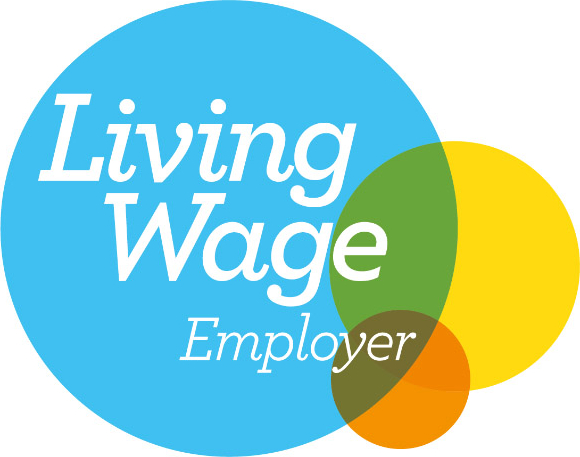DR MAX: this Insatiable Demand For Higher Doctors' Pay Looks Tawdry
- 회사명 ON
- 부서명
- 직책
- 이름 Ward Pointer
- 전화번호 496925180-496925180-496925180
- 팩스번호 --
- 휴대폰번호 EO-IP-BM
- 이메일
-
주소 ()
- 발주처
- 공사명
- 규격 | 수량규격 : | 수량 :
- 문의종류
- 등록일 25-07-04 23:07
Junior physicians are threatening to strike once again. So what, you might state? When are they not threatening a walk-out? In the previous 2 years, they have taken commercial action 11 times.
This makes me really upset. My medical union, the British Medical Association (BMA), is misusing public respect for physicians, battering truths and pursuing Left-wing crusades with no regard for the to the health service.
Their insatiable demands for higher pay make my profession, my long-lasting vocation, look tawdry, cynical and money-grubbing. There are minutes when I almost feel I could rip up my subscription card in aggravation.
But it isn't simply my union that is acting so disgracefully. The genuine culprit is the Labour government, whose ineptitude in union settlements since concerning power has actually set off a greedy free-for-all.

Unless these outrageous needs can be brought under control, I fear the NHS might be bankrupted.
The flashpoint this month is the BMA's demand for a pay boost better than the 4 percent that was executed on April 1 - a rise the union has dismissed as 'derisory'.
That 4 per cent is currently above the rate of inflation, which is currently performing at 3.5 percent. In fact, the offer offered to junior physicians (or 'resident physicians', as we're now supposed to call them) supplies substantially more, as they will get an additional ₤ 750 on top of the uplift, representing a typical increase in salary of 5.4 percent.
And it begins top of a colossal 22 percent average rise dished out by Health Secretary Wes Streeting in 2015 in a desperate quote to stop the consistent strikes, after they demanded a 30 per cent pay increase.
Their insatiable demands for higher pay make my occupation, my lifelong vocation, look tawdry, negative and money-grubbing, says Dr Max Pemberton
Junior medical professional members of the British Medical Association (BMA) on the picket line outside the Royal Victoria Infirmary, Newcastle in 2023
That craven capitulation by Labour didn't work, of course - just as surrender has actually shown not successful in mollifying the transportation unions, the instructors and every other militant collective. The BMA validates its ongoing push for greater pay by claiming doctors are even worse off by about a quarter in genuine terms because 2009.

The chairman of the BMA council, Professor Philip Banfield, sneers at the 4 per cent increase, stating it 'takes us backwards, pressing pay restoration even further into the range,' and includes ominously: 'Nobody wants a go back to scenes of medical professionals on picket lines, however unfortunately this looks much more most likely.'
What else did anyone anticipate? Unions are mandated to demand as much cash for their members as they can get. They do not exist to be reasonable or to welcome compromise. And when Labour shopped them off, the unions noticed weak point. Prof Banfield understands there are more concessions to be won now, more pips to be squeezed.
But the NHS is not some personal, profit-making corporation, and this is not a battle in between an exploited labor force and fat feline shareholders. Our beleaguered health service is funded by all of us - and it is on its knees.

This is something most physicians can recognise. Yet, over the previous decade or more, the union has been more worried with pursuing Left-wing programs than acting in the very best interest of its members.
For example, the BMA's leadership has refused to back the Cass Review, commissioned by the NHS as a report into gender identity services for children and young people.

The findings by Dr Hilary Cass, released in 2015, recommended against rushing under-18s into gender transition treatment, such as adolescence blockers, that they might later on be sorry for.
It needs to not be the BMA's function to launch into an argument on the interpretation of medical evidence. That's what the Royal Colleges are for.
Sir Keir Starmer and Health Secretary Wes Streeting. This year's pay rise follows resident medical professionals were awarded increases worth 22 per cent by Mr Streeting last year
The union has actually violated its bounds, and I'm seriously dissatisfied about paying my membership to an organisation that makes political statements in my name.
These consist of calls for a ceasefire in Gaza, for example, and criticism of China for human rights abuses - as if Hamas is going to return Israeli hostages or Beijing is going to stop persecuting the Uighur minority, even if a physician's union in the UK calls for it.
This is cheap virtue-signalling, provided for no other factor than to make the BMA officers feel excellent about themselves.
I would appreciate them a lot more if they put their energy into fact-checking their own claims. The BMA is susceptible to bandying about numbers that don't stand up to examination.
A few of their figures regarding earnings and inflation have actually been debunked, utilizing information from the Institute for Fiscal Studies. Since BMA members include physicians with expertise in medical stats, it's a shame to everyone.
Most of all, I dislike them for squandering the public support for doctors that we earned at great individual expense during the pandemic.
It is sickening that the real respect in which the medical profession was held simply five years ago has actually been replaced to a big degree by cynicism and even by disapproval.
Small marvel, then, that lots of junior doctors grumble that their pals with tasks in tech or banking are better off than they are.

Junior medical professionals demonstrating outside Downing Street last year during strike action
Medicine ought to be beyond contrast, not merely one of a raft of careers measured only by the financial rewards they bring.
This crisis has been brewing a long time, since before the 2010 union government.
Tony Blair's introduction of university costs in 1998 has actually led straight to the situation today, where almost all my junior colleagues are in financial obligation by up to ₤ 100,000 - or even more.
As a result, an increasing variety of more youthful colleagues seem to see a career in medicine as primarily transactional.

They argue that not just have they worked for their degree, but they have actually likewise purchased and spent for it. And that if they can earn more money by giving up the NHS for the economic sector, and even by emigrating to practise abroad, for instance in Australia, well, why shouldn't they?
It's a drastically different outlook to that of my generation. As someone who was lucky adequate to have his six years of medical training funded by the state, I see my function as a psychiatrist as far more than simply a task. It's my calling.
DR MAX PEMBERTON: Functioning drug addicts conceal in plain sight, here's how to identify the signs
I am deeply happy with what I do. Nothing else might change it or give me the exact same degree of satisfaction.
I personally believe that one method to solve the crisis of disappointed and requiring young doctors is to deal with trainee medical professionals and nurses as an unique case.
Instead of being obliged to secure crippling loans, medical students should sign up to have their years of training funded by the state.

In return, they would carry out to work specifically within the NHS for, state, 15 years. Their debt would not be a financial one however something much deeper - a responsibility to society.
Naturally, they could break this commitment if they wanted - however then they would be liable to pay back part or all the expense of their training.
This would not just make sure more junior medical professionals remained in Britain, instead of emigrating, however might also have a deep psychological result.
But the BMA don't trouble themselves with options like this. Instead, they focus on political posturing and myopic and unrealistic pay needs. It likewise contributes to a hazardous generational divide between older medical professionals and a brand-new generation with various values.
Unless the union pertains to its senses, it will do immeasurable damage to the NHS - the one organisation we are implied to serve.


